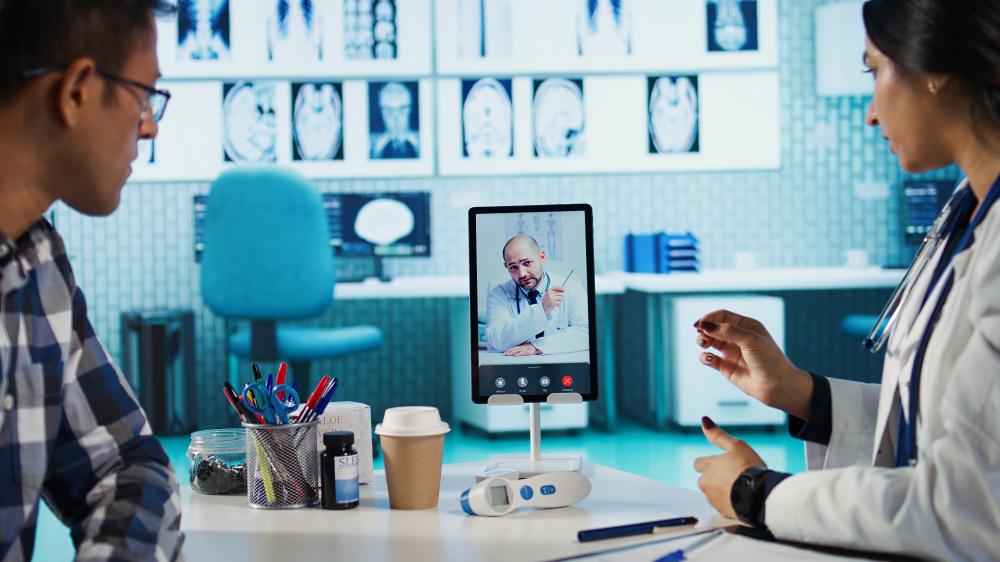
Mental Health Telehealth: An Overview
As a mental health professional with over 20 years of experience, I’ve witnessed firsthand the transformative power of telehealth in mental health care. Mental Health Telehealth, a rapidly evolving facet of healthcare, has become indispensable in recent years. It provides a convenient platform for both patients and providers, breaking down geographical and logistical barriers to access quality mental health services.
The convenience of Mental Health Telehealth lies in its ability to offer therapy sessions, medication management, and counseling services through digital platforms. This means individuals can receive care from the comfort of their homes, an advantage particularly beneficial for those with mobility issues or living in remote areas.
Key Benefits of Mental Health Telehealth
Mental Health Telehealth offers numerous advantages, including:
- Accessibility: Patients who live far from healthcare facilities can access services with ease.
- Privacy and comfort: Receiving care at home provides a familiar and private setting.
- Reduced stigma: Telehealth allows individuals to seek help discretely, minimizing the social stigma associated with mental health treatment.
- Flexible scheduling: Appointments can be scheduled around personal commitments.
Professional Insights on Mental Health Telehealth
At Solace Treatment Center, our approach to Mental Health Telehealth emphasizes personalized care. Through virtual platforms, we maintain a high standard of treatment similar to in-person sessions. Our experience shows that patients benefit greatly from the continuity of care telehealth provides, especially during life transitions or crises.
Additionally, telehealth allows us to offer a variety of therapeutic options. For instance, our group therapy sessions have seen increased participation due to the convenience of online meetings. Patients often report feeling more at ease sharing in a virtual environment.
Common Concerns and Misconceptions
Despite its benefits, Mental Health Telehealth is sometimes met with skepticism. A common concern is the perceived lack of personal connection. However, technology has advanced to the point where video conferencing can create a near-face-to-face experience.
Another misconception is that telehealth is only suitable for minor conditions. On the contrary, it is effective for a range of issues including anxiety, depression, and trauma-related disorders. At Solace Treatment Center, we use telehealth to administer comprehensive treatment plans for even complex cases like bipolar disorder.
Lastly, data privacy is a frequently mentioned issue. Rest assured, platforms used for telehealth must comply with stringent privacy laws, ensuring patient data is secure.
What Qualifies as a Mental Health Telehealth Emergency?
A Mental Health Telehealth emergency typically involves situations where immediate intervention is required to prevent harm to oneself or others. Examples include severe suicidal thoughts, intense panic attacks, or a sudden and debilitating depressive episode.
If you suspect that you or someone else is in a mental health crisis, follow these steps:
- Contact emergency services or a crisis hotline for immediate support.
- Inform your telehealth provider about the situation as soon as possible.
- Ensure a safe environment until professional help arrives.
This section aims to empower individuals to act quickly and responsibly in an emergency, understanding that telehealth can play a crucial role in immediate mental health intervention.
Exciting Developments in the Field
Mental Health Telehealth continues to evolve with innovative technology. One fascinating development is the use of artificial intelligence to enhance diagnostic accuracy and personalize treatment plans. Additionally, virtual reality is being explored as a tool for exposure therapy, offering new ways to treat phobias and PTSD.
The integration of wearable technology is another promising area, allowing real-time monitoring of vital signs and mood indicators. This advancement provides practitioners with valuable data to better tailor interventions, enhancing patient outcomes.
These innovations reflect the dynamic nature of Mental Health Telehealth and its potential to revolutionize mental health care.
Embracing these technologies can lead to a new era of personalized and proactive mental health care, ultimately improving access and outcomes for countless individuals.
How does mental health telehealth improve accessibility and ensure effective outcomes for patients living in remote areas?
Mental health telehealth significantly enhances accessibility by eliminating geographical barriers to mental health care. For individuals in remote areas, it provides an invaluable link to professional support without the need for long travels. A study published in the Journal of Medical Internet Research found that telehealth services contributed to improved treatment outcomes by offering consistent and timely access to care. At Solace Treatment Center, we’ve witnessed firsthand how providing therapy sessions online helps bridge the gap for those who might otherwise have limited access to mental health services. A patient once shared that attending sessions from their home allowed them to maintain consistency in their treatment without the added stress of travel. Do you think the benefits of access could influence people to seek help earlier than they might have otherwise considered?
Can mental health telehealth create meaningful personal connections between patients and clinicians?
Absolutely, mental health telehealth has the potential to foster genuine human connections, even when screen-mediated. While some might worry about the lack of face-to-face interaction, advances in technology have enabled video conferencing to mimic in-person experiences quite closely. At Solace Treatment Center, we prioritize creating a welcoming virtual environment, and many clients have expressed feeling just as connected as they would in a physical office setting. For instance, during a group therapy session, one participant shared that the online platform felt like a safe space to be vulnerable, leading to significant breakthroughs. Have you ever experienced a virtual interaction that felt surprisingly personal, perhaps even more so than an in-person meeting?
Is mental health telehealth effective in managing complex conditions like bipolar disorder or severe anxiety?
Mental health telehealth can indeed be effective in managing complex mental health conditions such as bipolar disorder and severe anxiety. At Solace Treatment Center, our integrated treatment plans are tailored to each individual’s needs, which include comprehensive telehealth services. Evidence from various studies, including a report by the American Psychiatric Association, supports the efficacy of telehealth in treating a wide range of psychological disorders. One of our patients reported a drastic reduction in anxiety symptoms by integrating teletherapy with their medication plan, highlighting how telehealth can complement traditional therapeutic approaches. Would exploring telehealth services make you more inclined to pursue mental health support for complex issues?
How is patient privacy safeguarded in mental health telehealth services?
Patient privacy is a cornerstone of telehealth services, and stringent measures are in place to protect sensitive information. At Solace Treatment Center, we use platforms that comply with HIPAA regulations, ensuring all data exchanges are secure and encrypted. This commitment to privacy reassures clients that their information is handled with the utmost care. A common misconception is the risk of privacy breaches, but with robust digital safeguards, virtual sessions can be just as secure–if not more–than traditional in-office visits. Have privacy concerns ever deterred you from seeking new technologies or digital services?
What steps should someone take if they experience a mental health emergency during a telehealth session?
If a mental health emergency occurs during a telehealth session, immediate action is crucial. At Solace Treatment Center, we advise clients to contact emergency services or a crisis hotline as the first step. Following this, informing your telehealth provider about the situation ensures continuity and support in navigating the crisis. Our approach involves creating a safety plan with clients to guide actions during emergencies. One particularly memorable case involved a young adult who experienced intense panic attacks; having an action plan in place was pivotal in managing the situation safely. Could having a predefined emergency plan empower you to feel more secure in pursuing telehealth options?
What exciting technological developments are shaping the future of mental health telehealth?
The future of mental health telehealth is bright with numerous technological advancements. Artificial intelligence is being leveraged to refine diagnostic processes, offering personalized treatment plans that can adapt to patients’ changing needs. Additionally, virtual reality is breaking new ground as an innovative tool for exposure therapy, particularly for conditions such as PTSD. At Solace Treatment Center, we are exploring the potential of wearable technology to monitor patients’ vitals and mood, providing real-time data to inform treatment decisions. This integration not only enhances patient care but also empowers individuals to take an active role in their healing journey. What technological innovations are you most excited about in the field of mental health?



